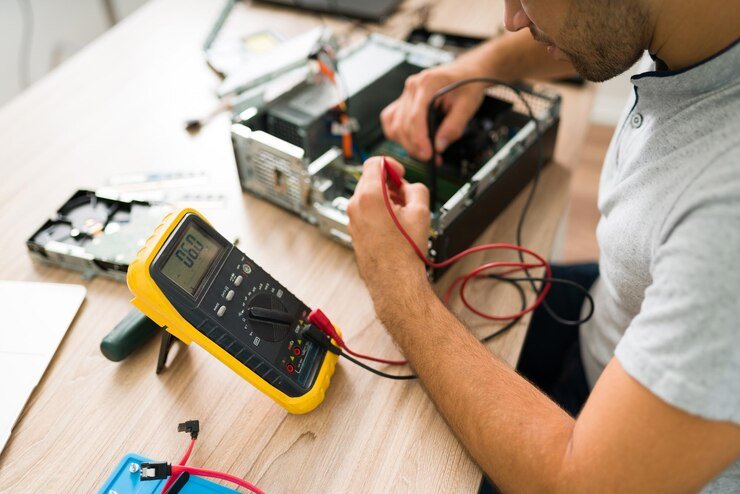Hardware Engineering
Embark on a journey into the heart of technology with our Hardware Engineering Course. Dive deep into the intricate design and development of hardware systems that power the digital world. Learn the fundamentals of circuit design, microprocessor architecture, and electronic components. Gain hands-on experience in prototyping and testing hardware prototypes, honing your skills in soldering, PCB layout, and troubleshooting. Explore cutting-edge technologies such as Internet of Things (IoT), embedded systems, and hardware security. Our comprehensive curriculum equips you with the knowledge and skills to tackle real-world engineering challenges, from designing consumer electronics to optimizing data center infrastructure. Whether you’re a budding engineer or a seasoned professional looking to expand your expertise, our Hardware Engineering Course provides the perfect platform to explore, innovate, and excel in the dynamic field of hardware engineering. Join us and unlock the possibilities of tomorrow’s technology today.

Hardware engineering course benefits
Hardware engineering courses offer a multitude of benefits for aspiring professionals seeking to delve into the world of technology. Firstly, these courses provide a comprehensive understanding of electronic systems, circuit design, and hardware components, laying a solid foundation for a career in engineering. Additionally, students gain practical skills through hands-on lab work, allowing them to apply theoretical knowledge to real-world projects. Moreover, hardware engineering courses often incorporate elements of computer architecture and embedded systems, preparing students for roles in industries such as telecommunications, consumer electronics, and automotive engineering. Furthermore, the demand for hardware engineers is on the rise, with opportunities for innovation and advancement in areas like IoT (Internet of Things), robotics, and wearable technology. Ultimately, completing a hardware engineering course opens doors to diverse career paths and empowers individuals to contribute to the ever-evolving field of technology
Exploring a Career in Hardware Engineering
A career in hardware engineering offers a gateway to shaping the future of technology. As a hardware engineer, you’ll design, develop, and test electronic components, systems, and devices. From microprocessors to circuit boards, your work will lay the foundation for the next generation of technological innovations.
Hardware engineers play a pivotal role in various industries, including telecommunications, automotive, aerospace, and consumer electronics. With a strong foundation in electrical engineering and computer science, you’ll be equipped to tackle complex problems and bring cutting-edge hardware solutions to life.
This dynamic field offers a wide range of opportunities for specialization, including digital systems design, embedded systems, signal processing, and hardware-software integration. Whether you’re interested in research and development or product design and manufacturing, a career in hardware engineering promises excitement, challenges, and the chance to leave a lasting impact on the world of technology.
